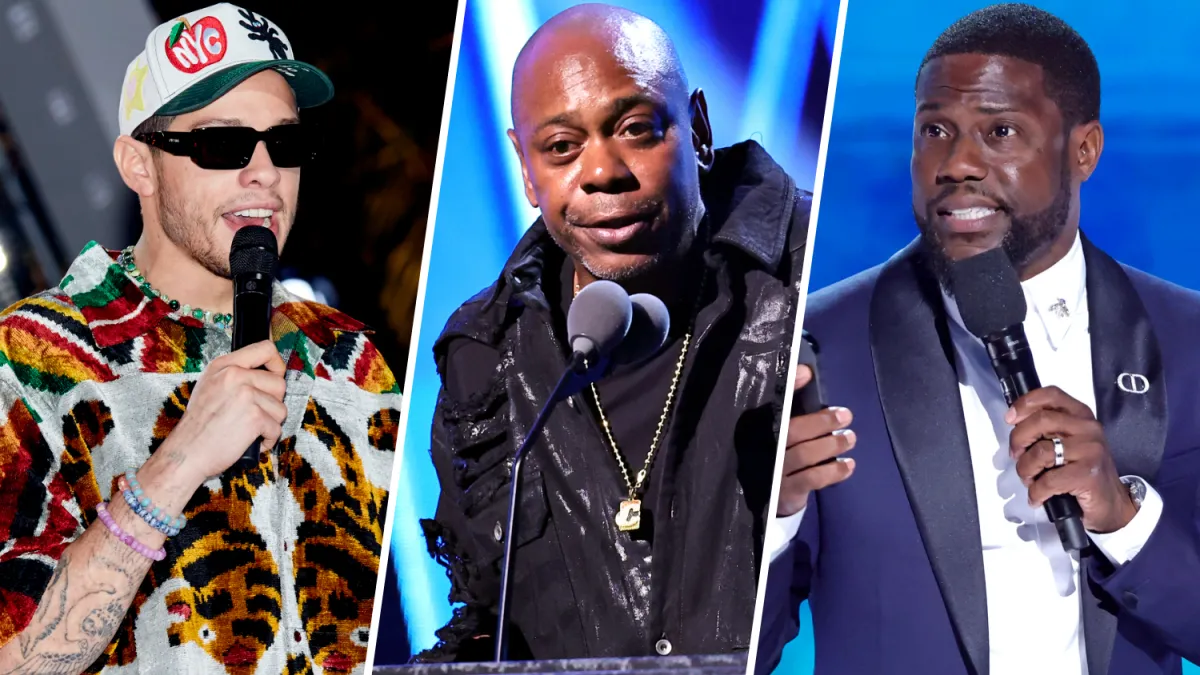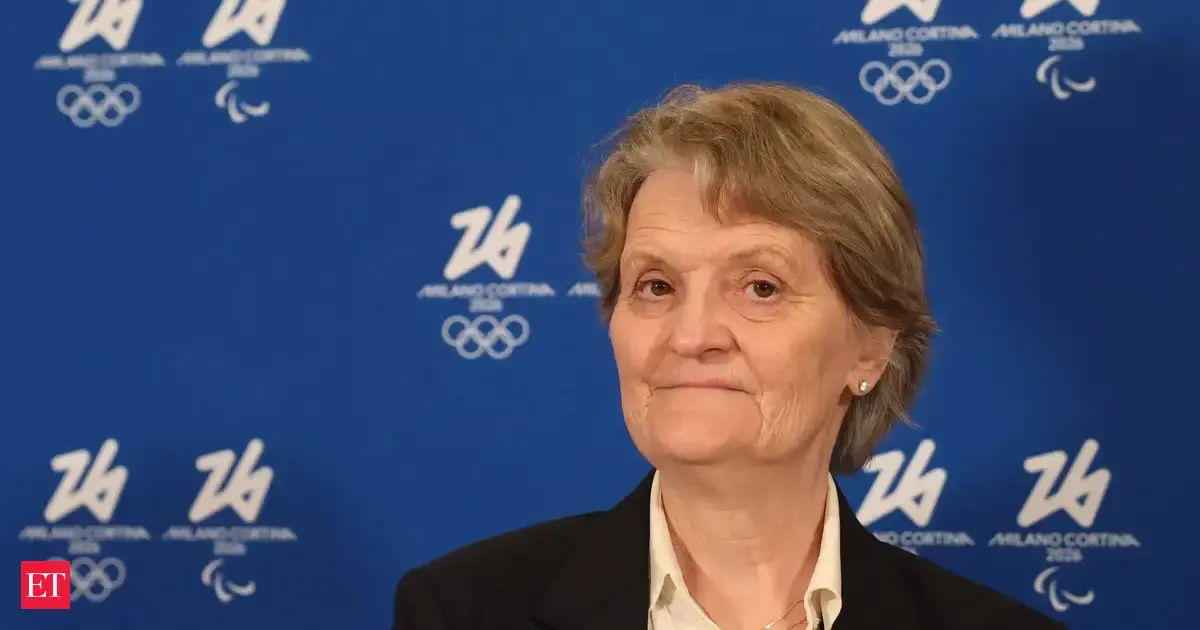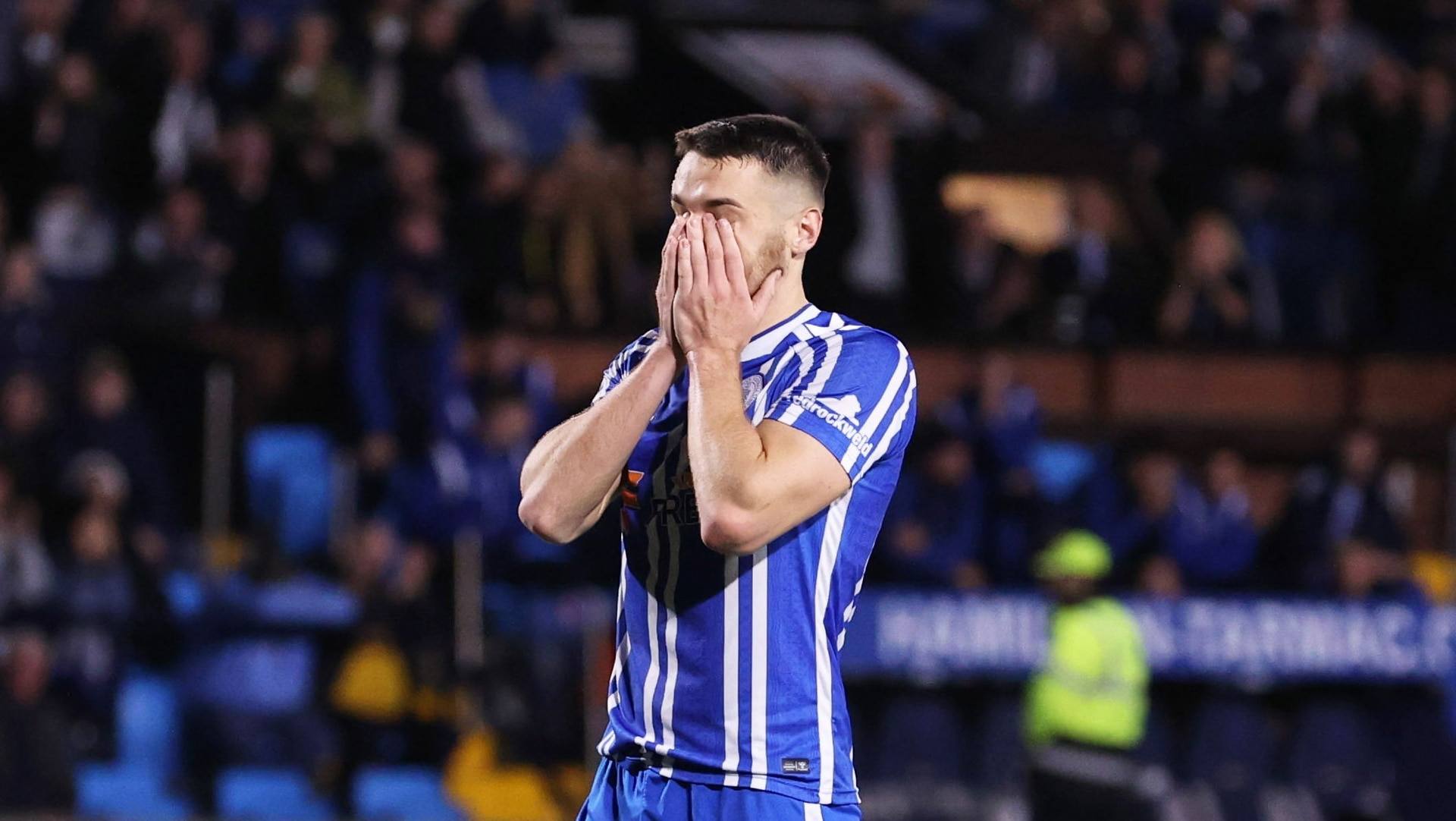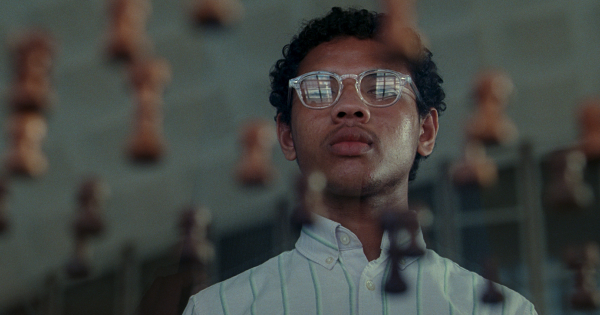
A comedy festival in the capital of Saudi Arabia has become a cultural flash point as major comedians face criticism for accepting seemingly lucrative deals to perform in a country that was virtually impossible to visit until 2019 and a pariah in much of the West for its human rights record.
The Riyadh Comedy Festival, which began Friday and runs through Oct. 9, features a variety of big names such as Dave Chappelle, Kevin Hart, Aziz Ansari, Pete Davidson, Andrew Schulz, Jo Koy, Bill Burr, Jessica Kirson, Jimmy Carr and Louis C.K.
These comedians, most of them American, are now encountering resistance from some fans, human rights advocates and fellow comics in the industry.
Marc Maron, host of the “WTF” podcast, blasted the festival in a recent stand-up clip, joking that it was easy for him to “take the high road on this one” considering he was not invited to perform.
“I mean, how do you even promote that?” Maron said. “Like, ‘From the folks that brought you 9/11, two weeks of laughter in the desert. Don’t miss it.’ I mean, the same guy that’s gonna pay them is the same guy that paid that guy to bone-saw Jamal Khashoggi and put him in a f—ing suitcase.”
The Saudi Embassy in Washington, D.C., declined to comment. Saudi Arabia’s General Entertainment Authority, which announced the festival in July, did not immediately respond to a request for comment.
“The festival is the largest of its kind globally, bringing together a selection of award-winning comedy stars known for their outstanding performances on international stages and streaming platforms,” the Saudi Press Agency wrote in its announcement for the General Entertainment Authority. “It reflects the efforts to amplify Riyadh’s status as a leading destination for major cultural and artistic events.”
Saudi Arabia, the oil-rich home of Islam’s two holiest sites, was for years among the most socially conservative nations on Earth with a morality police enforcing a strict interpretation of Shariah. In recent years under the rule of de facto leader Crown Prince Mohammed bin Salman, the country expanded its cultural and political influence by diversifying its economy and investing in sports, entertainment and tourism to improve its global image. Along with this, the crown prince oversaw a sweeping crackdown on dissent — imprisoning disgruntled royals, women’s rights advocates, and reforming clerics as well as adherents to previously government-sanctioned proponents of strict Wahhabi Islam.
Celebrities and influencers have often been criticized for performing in the country or participating in tourism campaigns, and FIFA drew condemnation last year for selecting Saudi Arabia to host the 2034 World Cup.
Shane Gillis, who said he was offered an invite, claimed that the organizers “doubled the bag,” or the amount of money offered, after he declined to participate.
“It was a significant bag, but I’d already said no,” Gillis said on his podcast. “I took a principled stand.”
On TikTok and Instagram, verified accounts that appeared to belong to Turki Al-Sheikh, a royal court adviser who has emerged as a powerful figure in sports and entertainment as part of Saudi Arabia’s push into the global culture industry, posted videos of Chappelle and Hart.
In a news release last week, Human Rights Watch wrote that the Saudi government is using the festival “to deflect attention from its brutal repression of free speech and other pervasive human rights violations” and called on the performers “to publicly urge Saudi authorities to free unjustly detained Saudi dissidents, journalists, and human rights activists.”
The nonprofit watchdog organization noted that some of the events land on the seventh anniversary of the assassination of Washington Post columnist Jamal Khashoggi, who was killed at the Saudi Consulate in Istanbul by intelligence operatives with close ties to the crown prince. The festival also takes place just months after Saudi authorities executed Turki al-Jasser, a journalist known for exposing corruption within the Saudi royal family.
“The seventh anniversary of Jamal Khashoggi’s brutal murder is no laughing matter,” Joey Shea, Saudi Arabia researcher at Human Rights Watch, said in a statement. “And comedians receiving hefty sums from Saudi authorities shouldn’t be silent on prohibited topics in Saudi like human rights or free speech.”
Other listed performers for the festival include: Sebastian Maniscalco, Maz Jobrani, Tom Segura, Whitney Cummings, Jimeoin, Russell Peters, Andrew Santino, Bobby Lee, Chris Distefano, Mark Normand, Gabriel Iglesias, Hannibal Buress, Sam Morril, Jeff Ross, Omid Djalili, Ali Siddiq, Zarna Garg, Chris Tucker and Ben Hart.
These performers did not respond to requests for comment.
The Saudi government has been censured by dozens of countries, and in 2024 it was denied a second attempt at scoring a seat on the United Nations Human Rights Council. In the U.S., relatives of victims of the Sept. 11 terror attacks have accused the Saudi government of having potential ties to the attack. (A direct link has not been proven.)
But it has also made significant inroads with some powerful figures in the West, most notably the Trump family. President Donald Trump’s son-in-law Jared Kushner worked with the Saudis to secure a $2 billion investment in his firm and recently partnered with the country’s public investment fund to strike a $55 billion deal to take the video game giant Electronic Arts private. Trump has maintained a close relationship with the crown prince throughout the Saudi royal’s fraught tenure.
The festival and subsequent fallout has also provided a rare window into these events and, in particular, the money and self-censorship often involved.
One comedian, Atsuko Okatsuka, posted screenshots to Threads of what she said was her invite to the festival, including a section on “Content Restrictions” that prohibited the artists from performing material that “may be considered to degrade, defame, or bring into public disrepute, contempt, scandal, embarrassment, or ridicule” the country, its royal family or any religion.
“A lot of the ‘you can’t say anything anymore!’ Comedians are doing the festival 😂” Okatsuka wrote. “they had to adhere to censorship rules about the types of jokes they can make.”
Mike Birbiglia and Leslie Liao were among the comics who responded to her post, sharing that they had rejected the offer as well.
Stavros Halkias similarly revealed in a podcast episode with Distefano, who did agree to perform, that he didn’t take the deal. Distefano told Halkias that while he “didn’t want to do it either,” his fiancée had ultimately urged him to “take that f—ing money.”
At least one comedian, however, appears to have changed his mind despite initially agreeing to perform. Nimesh Patel, who was slated to get on stage Sunday, posted a TikTok video over the weekend sharing that he recently canceled his appearance after “having a change of heart.” That video has since become unavailable.
“I’ll just do 40 shows that I had not planned on doing here in the perfectly clean, moral, above-everyone-else, United States of America — I’m tired just thinking about it — to make up for the lost bag,” Patel said.
Meanwhile, comedian and podcaster Tim Dillon said in an episode of his podcast that he was dropped from the festival for making a joke about the country “having slaves.”
“I’m gonna get fired again from people that are not even Saudis. I’m gonna get fired by people who don’t chop hands off. I’m gonna get fired by reasonable people. I’m gonna get fired by people that don’t practice Shariah law,” Dillon said. “This is the most controversial the people who fire me will ever be. Let me relish in this. Let’s take this win.”
The Saudi Embassy did not immediately respond to a request for confirmation about the cancellation of Patel’s and Dillon’s shows.
Natasha Lebedeva contributed.



